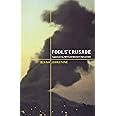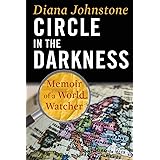
Enjoy fast, free delivery, exclusive deals, and award-winning movies & TV shows with Prime
Try Prime and start saving today with fast, free delivery
Amazon Prime includes:
Fast, FREE Delivery is available to Prime members. To join, select "Try Amazon Prime and start saving today with Fast, FREE Delivery" below the Add to Cart button.
Amazon Prime members enjoy:- Cardmembers earn 5% Back at Amazon.com with a Prime Credit Card.
- Unlimited Free Two-Day Delivery
- Streaming of thousands of movies and TV shows with limited ads on Prime Video.
- A Kindle book to borrow for free each month - with no due dates
- Listen to over 2 million songs and hundreds of playlists
- Unlimited photo storage with anywhere access
Important: Your credit card will NOT be charged when you start your free trial or if you cancel during the trial period. If you're happy with Amazon Prime, do nothing. At the end of the free trial, your membership will automatically upgrade to a monthly membership.





Download the free Kindle app and start reading Kindle books instantly on your smartphone, tablet, or computer - no Kindle device required.
Read instantly on your browser with Kindle for Web.
Using your mobile phone camera - scan the code below and download the Kindle app.

Follow the author
OK
Fools' Crusade: Yugoslavia, Nato, and Western Delusions Paperback – Illustrated, November 1, 2002
Purchase options and add-ons
Military interventions on supposedly humanitarian grounds have become an established feature of the post-Cold War global order. Since September 11, this form of militarism has taken on new and unpredictable proportions. Diana Johnstone's well-documented study demonstrates that a crucial moment in establishing in the public mindand above all, within the political context of liberalism and the leftthe legitimacy of such interventions was the "humanitarian" bombing of the former Yugoslavia in 1999.
In the course of the civil wars that led to the break-up of Yugoslavia, a complex history came to be presented as a morality play in which the parts were scripted to meet the moral needs of the capitalist West. The identification of Muslims as defenseless victims and Serbs as genocidal monsters inflamed fears and hatreds within Yugoslavia, and prepared the way for power to be shifted from the people of the region to such international agencies as NATO.
Deceptions and Self-Deceptionstests the popular myths against the reality of Yugoslav history. Johnstone identifies the common geopolitical interests running through such military interventions, and argues persuasively that they create problems rather than solving them. She shows that the "Kosovo war" was in reality the model for future destruction of countries seen as potential threats to the hegemony of an "international community" currently being redefined to exclude or marginalize all but those who conform to the interests of the United States.
A concluding chapter shows how the script prepared for Yugoslavia is being re-enacted in Afghanistan. Whether Milosevic's trial before the International Court at the Hague or the capture of bin Laden will provide an adequate conclusion to this ideological play-making, remains an open question.
-
Print length288 pages
-
LanguageEnglish
-
PublisherMonthly Review Press
-
Publication dateNovember 1, 2002
-
Dimensions5.26 x 0.63 x 8.48 inches
-
ISBN-10158367084X
-
ISBN-13978-1583670842
Frequently bought together

Customers who viewed this item also viewed
Editorial Reviews
Book Description
About the Author
Product details
- Publisher : Monthly Review Press; First Edition (November 1, 2002)
- Language : English
- Paperback : 288 pages
- ISBN-10 : 158367084X
- ISBN-13 : 978-1583670842
- Item Weight : 12.9 ounces
- Dimensions : 5.26 x 0.63 x 8.48 inches
- Best Sellers Rank: #1,154,380 in Books (See Top 100 in Books)
- #1,971 in European Politics Books
- #17,048 in European History (Books)
- Customer Reviews:
About the author

Discover more of the author’s books, see similar authors, read author blogs and more
Customer reviews
Customer Reviews, including Product Star Ratings help customers to learn more about the product and decide whether it is the right product for them.
To calculate the overall star rating and percentage breakdown by star, we don’t use a simple average. Instead, our system considers things like how recent a review is and if the reviewer bought the item on Amazon. It also analyzed reviews to verify trustworthiness.
Learn more how customers reviews work on Amazon-
Top reviews
Top reviews from the United States
There was a problem filtering reviews right now. Please try again later.
The people who rate this poorly are the very same people that, time and time again, believe so willingly anything the western media tells them (they probably still believe that the Vietnamese *did* attack US ships in the Tonkin Gulf, and that Iraq does have WMD's...). They are the 'moral majority' fed on lies and ignorance. But being morally correct makes them feel better and it makes them better people - and not inhuman monsters that question the legitimacy of claims made by governments that have, throughout history, sought to distort the truth for political aims (in reality economic ones). I hope these same reviewers have condemned the US for the millions of Vietnamese civilians that were murdered by the US govt during the Vietnam War..and that Nixon, Johnson et al should be found guilty of the 'joint criminal enterprise' of murderous US aggression in Indochina. Hmmm...i wonder.
Let us not forget that crimes were committed during this war..as they are in every war..and that BOTH sides committed them. This is something that this moral majority seems to forget. No one is disputing the crimes, but only the intent (as this is the basis of the so-called 'justice' being metered out by the ICTY). What is being disputed is the readiness of media agencies to only report those crimes committed by the Serbs. This readiness was founded not on the preservation of peace, or some genuine humanitarian objectives, but on individual gain, and for broader geopolitical aims that in the process have attempted to ruin a country and its reputation.
The book itself is very well written and very well documented. Even 6 years after it's publication, little in the way of additional facts have surfaced that could be said to refute the arguments raised in this book.
Buy this book. It is worth every cent.
My grandfather joined the army when he was 26 years old. He helped liberate the Ravensbruch concentration camp in World War II. From him I have heard first hand accounts of the horrors of genocide and war crime. "Genocide" and "war crime" have since become emotional triggers used freely by propagandists. All wars have atrocities, but beyond shrill cries and inflated statistics, there is little evidence to support claims of either genocide or war crimes in Yugoslavia. Unconvinced? Read the book. Still unconvinced? Write a refutation.
The Yugoslav civil war can be summarized by the advice Mohammed gave his disciple Nu`aym bin Ma`sud: "Go and awake distrust among the enemy to draw them off us if you can, for war is deceit." (§ 681, p.458. Ishaq's Sirat Rasul Allah "The Life of Muhammad" A. Guillaume, trans. Oxford University Press. Available at Amazon.com)
Top reviews from other countries
This excellent book by Diane Johnstone describes how the West was both misled by irredentist nationalistic groups in the former Yugoslavia, and how it allowed itself to deliberately misinterpret facts which did not suit its own aims. The aim of the West was to demonise Serbia for a multitude of reasons, some of which were self-serving. Western military and financial aid was given to anti-Serbian factions for 'humanitarian' reasons, to counter the atrocities allegedly perpetrated by the Serbs against, for example, the Catholic Croats, the Bosnian Moslems and the Kosovar Albanians. In each of these examples, there were undoubtedly atrocities perpetrated by both sides: Serbs killing Albanians or Bosnians AND vice-versa. However, the Western media only chose to recognise killings carried out by the Serbs, or those that might have been carried out by them but were never proven.
Before, international 'humanitarian' assistance in the form of NATO troups could be provided to the so-called oppressed minorities in Yugoslavia, it was necessary to encourage the break-up of the federation into smaller nation states such as Bosnia, Croatia, and Slovenia. This way, conflicts that should have correctly have been considered as civil wars within Yugoslavia suddenly became international disputes in which it was deemed suitable to provide international military aid.
The break up of Yugoslavia was aided and abetted by the West, for example by Germany. Germany during WW2 championed the formation of an independent Croatia and an enlarged Albania that included large parts of Kosovo. In the 1980s and 1990s, this country, no longer led by the Nazis but instead by social minded liberals including the Green Party, encouraged the re-formation of what had been achieved in the early 1940s. The Croats and Slovenians were considered by the Germans and others in the West as being 'civilised' Europeans, whereas the Serbs were considered as uncivilised barbarians. Even worse, the Serbs, thanks to their poor public relations compared to those of the Bosnians, Croats, and Albanians, became the new 'Nazis' of Europe - purveyors of 'genocide' and a new 'holocaust'.
Johnstone goes to great pains to demonstrate that not only has the word 'humanitarian' become corrupted in its usage, but also the far more emotive words 'genocide' and 'holocaust'. In the famous Serbian 'massacre' at Srebrenica, not only the Bosnian women and children were spared by the Serbs, but also wounded men. This does not happen in true genocide. Furthermore, in the case of this particular unfortunate incident, it seems that the Serbian massacre of the Bosnians might well have been engineered by the leader of the Bosnian Moslems in order to gain further 'humanitarian' (i.e military and financial) aid from the West.
What was in it for the West? Why was the bombing of Serbia so important or even necessary? Had Yugoslavia been allowed to continue as an independent multi-cultural country as it had been prior to the downfall of the USSR, it might not have been amenable to the expansionist, power hungry designs of the West, for which you should read 'USA'. One of these was the construction of an oil pipe-line from the Black Sea to the Albanian port of Vlora on the Adriatic coast. This would allow oil from the Caspian to avoid travelling along the already congested Bosphorus, and also to use the larger tankers which the port of Vlora would easily accommodate. It is therefore not surprising the the USA have built Camp Bondsteel near to Urosevac in Kosovo, conveniently located to guard the proposed pipe-line.
Even if only 5% of what Johnstone claims in her meticulously annotated text is true, then what she writes should send shivers down the spine of anyone who values the true, old-fashioned meanings of words such as 'freedom', 'independence', 'humanitarian', and that favourite American word 'liberty' as well as 'genocide' and 'holocaust'. Johnstone successfully demonstrates how the citizens of the West were misled into believing a simplistic version of events in the Balkan peninsular, and were then bamboozled into thinking that aiding forces hostile to the West (eg Croatian fascists and Islamic mujahidin in Bosnia) and bombing Serbia would somehow resolve the problem. Instead of resulting in a humanitarian victory, the West wittingly and unwittingly magnified the suffering of the ordinary person, Serb and otherwise, in the former Yugoslav territories.
This is a book that is a must-read if you are interested in Balkan matters and/or the growing malevolent influence of the USA on world affairs. The author writes well, and apart from achieving her main aims, gives a remarkably lucid view of the complex history of the country that was once known as 'Yugoslavia'.
Reviewed by the author of "SCRABBLE WITH SLIVOVITZ" , a book about Yugoslavia before its break-up commenced in 1991.










